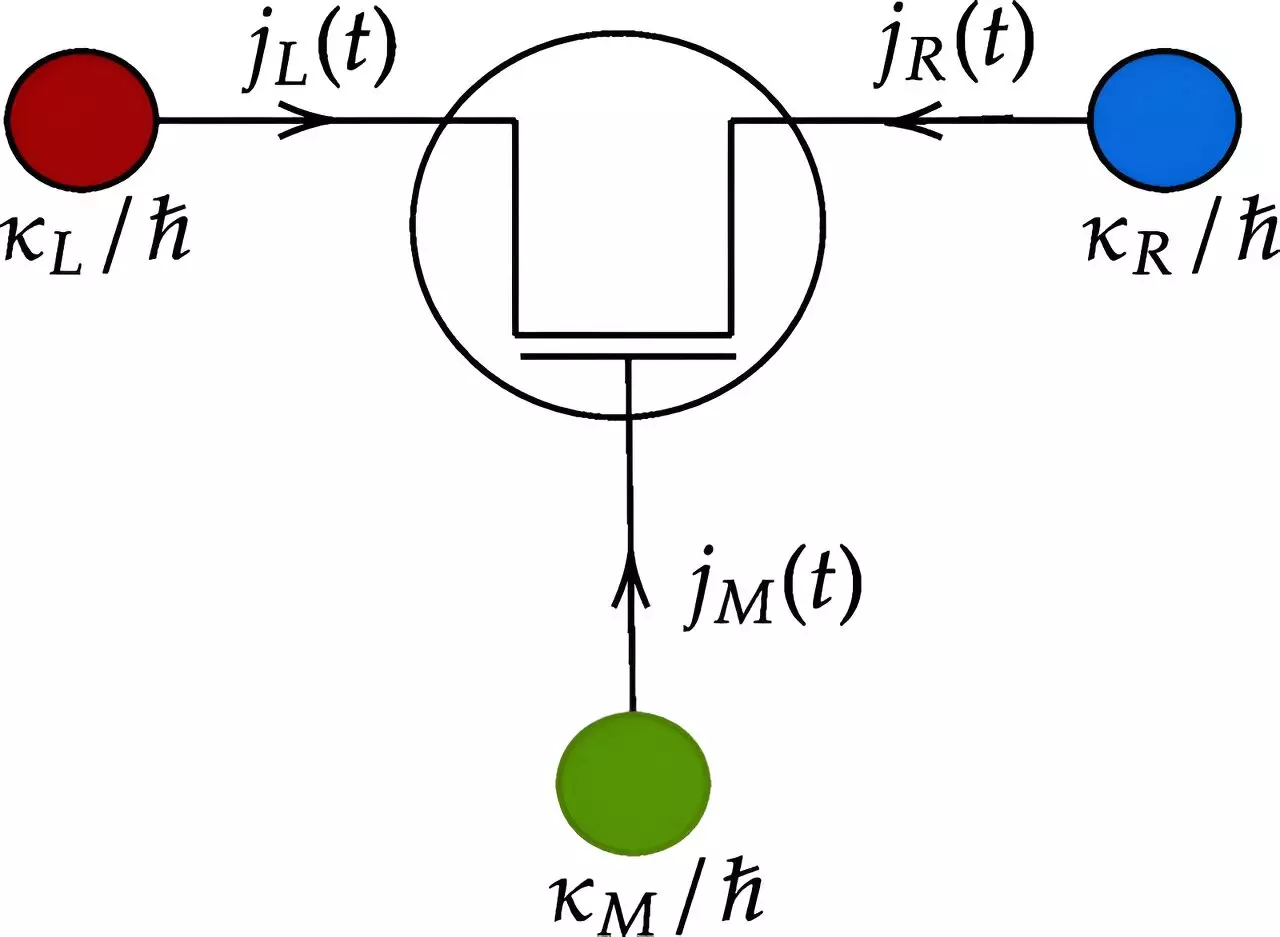The realm of quantum systems and materials has been a focal point for researchers aiming to revolutionize energy management and conservation. This ambitious pursuit has led to the development of cutting-edge platforms dedicated to creating quantum thermal machines, unlocking the full potential of quantum technologies in advanced energy solutions.
In recent scientific discourse, the scientific community has shifted its focus towards pioneering the domain of quantum thermal transistors. These sophisticated apparatuses are designed for the precise management of heat transfer, offering exciting possibilities for improved energy efficiency. However, the intricate cooling and environmental regulations landscape present notable challenges in achieving optimal quantum device performance.
The current cooling infrastructures, particularly those catering to diverse qubit technologies like quantum computers, pose significant obstacles. These challenges necessitate avant-garde solutions that can effectively address the demands of quantum thermal machines. High-performance cooling mechanisms are essential to mitigate environmental interactions and prevent the undesirable transition of quantum devices into a classical state induced by decoherence.
In the pursuit of advanced energy management, quantum measurements and control have become pivotal in the design of quantum thermal machines. These interventions are crucial in preserving the inherent quantum properties of devices while combating decoherence. However, the introduction of noise by measurement probes poses a formidable challenge, warranting innovative solutions.
To tackle the critical issue of noise introduced by measurement probes, an advanced theoretical framework has been introduced – the conditioned quantum thermal transistor. This paradigm undergoes continuous monitoring orchestrated by its environmental milieu, leading to a comprehensive understanding of nuanced dynamics. Drawing inspiration from classical transistors, an elaborate stochastic noise model has been devised to analyze the behavior and optimize quantum thermal machine architectures.
As devices undergo miniaturization, their susceptibility to environmental influences becomes increasingly significant. The manifestation of intrinsic fluctuations, coupled with thermal noise and extraneous perturbations, profoundly influences small-scale devices. Therefore, preemptively characterizing such stochastic behavior is invaluable for comprehending the operational limitations embedded within these devices.
Although the maturation of functional quantum thermal transistors is still at a nascent stage, the introduction of the conditioned quantum thermal transistor offers a pioneering framework. Future research aims to delve deeper into the complex dynamics of these devices when subjected to feedback control through continuous measurements. This exploration is crucial in integrating quantum feedback mechanisms seamlessly into thermal transistors, paving the way for innovative and highly efficient heat management systems.
Uthpala N. Ekanayake, a PhD candidate and member of the Advanced Computing and Simulations Laboratory at Monash University, Australia, earned her B.Sc. in electrical and electronic engineering from the University of Peradeniya, Sri Lanka. Under the supervision of Prof. Malin Premaratne, she actively contributes to the advancement of quantum device theory and design.
Prof. Malin Premaratne, a full professor at Monash University Clayton, Australia, holds multiple degrees from the University of Melbourne. His unique approach combines profound theoretical physics with pragmatic electrical engineering methods, establishing an interdisciplinary nexus between fundamental physics and translational engineering technology. Prof. Premaratne’s expertise in quantum electrodynamics has garnered him numerous prestigious fellowships and accolades, recognizing his significant contributions to optics and photonics.
The conditioned quantum thermal transistor represents a significant advancement in the field of quantum thermal machines. By addressing the challenges of cooling infrastructures and incorporating quantum measurements and control, this innovative framework holds immense potential for optimizing energy management through quantum technologies. As the research continues to refine and explore the dynamics of thermal transistors, the integration of quantum feedback mechanisms promises to unlock new frontiers in efficient heat management systems.


Leave a Reply